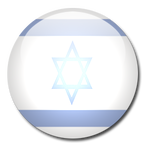International Headteacher
Menu
|
Full name: State of Israel
Population: 7.3 million (UN, 2010) Seat of government: Jerusalem, though most foreign embassies are in Tel Aviv Area: Israeli Central Bureau of Statistics cites 22,072 sq km (8,522 sq miles), including Jerusalem and Golan Major languages: Hebrew, Arabic Major religions: Judaism, Islam, Christianity Life expectancy: 80 years (men), 84 years (women) (UN) Monetary unit: 1 new Israeli shekel (NIS) = 100 new agorot Main exports: Computer software, military equipment, chemicals, agricultural products GNI per capita: US $27,170 (World Bank, 2010) Internet domain: .il International dialling code: +972 |
|
A densely-populated country on the eastern shore of the Mediterranean Sea, Israel is the only state in the world with a majority Jewish population.
It has been locked in conflict with the Palestinians and its Arab neighbours over ownership of land considered holy by Jews, Christians and Muslims since its creation in 1948. The division of the former British mandate of Palestine and the creation of the state of Israel in the years after the end of World War II was the culmination of the Zionist movement, whose aim was a homeland for Jews scattered all over the world. After the Nazi Holocaust pressure grew for the international recognition of a Jewish state, and in 1948 Israel declared its independence following a UN vote to partition Palestine. Much of the history of the area since that time has been one of conflict between Israel on one side and Palestinians - represented by the Palestine Liberation Organisation - and Israel's Arab neighbours, on the other. Hundreds of thousands of Palestinians were displaced in the fighting in 1948, during which Israel's Arab neighbours came to the aid of the Palestinian Higher Council. Israel lost one percent of its population in the fighting, which ended in a series of uneasy armistices. Israel has developed from an agrarian state run along collectivist lines into a hi-tech economy in the past 60 years. It has absorbed Jewish immigrants from Europe, the rest of the Middle East, North America and, most recently, the former Soviet Union and Ethiopia along the way. Its political life has nonetheless been dominated by the conflict with its Arab neighbours, including full-scale regional wars in 1948, 1967 and 1973, and many smaller-scale conflicts including the 1956 invasion of Egypt and the Lebanon wars of 1982 and 2006. Relations with the Palestinians have been the key factor in foreign and security policy. The Palestinians in the West Bank and eastern Jerusalem have lived under Israeli occupation since 1967. The settlements that Israel has built in the West Bank are home to nearly 500,000 people and are deemed to be illegal under international law, although Israel disputes this. Israel evacuated its settlers from the Gaza Strip in 2005 and withdrew its forces, ending almost four decades of military occupation. However, after the militant Islamic group Hamas seized control of Gaza in June 2007, Israel intensified its economic blockade of the Strip. At the end of 2008 it launched a major military assault on Gaza to halt cross-border rocket attacks. In 1979 Egypt and Israel signed a peace agreement, but it wasn't until the early 1990s, after years of an uprising known as the intifada, that a peace process began with the Palestinians. Despite the handover of Gaza and parts of the West Bank to Palestinian control, a final agreement has yet to be reached. The main stumbling blocks include the status of Jerusalem and the fate of Palestinian refugees and Jewish settlements. |
information provided by www.bbcnews.co.uk

